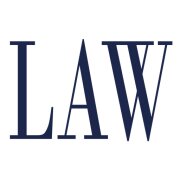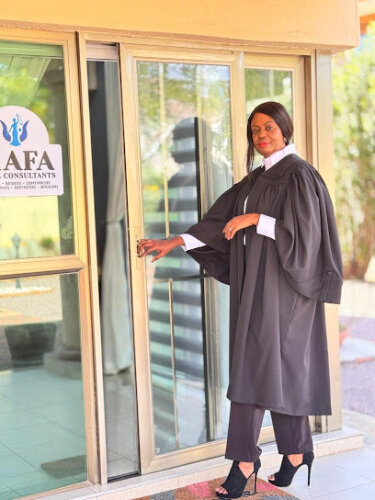Best Landlord & Tenant Lawyers in Botswana
Share your needs with us, get contacted by law firms.
Free. Takes 2 min.
Free Guide to Hiring a Real Estate Lawyer
Or refine your search by selecting a city:
List of the best lawyers in Botswana
About Landlord & Tenant Law in Botswana
In Botswana, the relationship between landlords and tenants is governed by both statutory and common law principles. The legal framework aims to balance the rights and responsibilities of both parties, ensuring fair treatment and resolving disputes amicably. Key statutes include the Rent Control Act and the Landlord and Tenant Act, which cover issues such as rent, leases, and eviction procedures. Understanding these laws is crucial for both landlords and tenants to navigate their rights and duties effectively.
Why You May Need a Lawyer
There are several situations where seeking legal advice becomes essential in landlord and tenant matters:
- Lease Agreement Disputes: When disagreements arise over the terms and conditions of a lease agreement.
- Eviction Proceedings: If a landlord is attempting to evict a tenant, or vice-versa, if a tenant disputes an eviction notice.
- Rent Increases: Disputes or confusion surrounding legal rent increases and the landlord’s obligations.
- Non-Compliance with Lease Terms: Situations where either party has violated the terms of the lease agreement.
- Repairs and Maintenance: When there is a disagreement about who is responsible for property repairs.
- Security Deposit Disputes: Issues regarding the return or deduction from a security deposit.
- Unlawful Entry: If a tenant believes a landlord has entered the property without permission or notice.
Local Laws Overview
The Rent Control Act and the Landlord and Tenant Act are key legal documents governing tenancy in Botswana. Important aspects include:
- Rent Determination: Rent is often determined by market rates but subjected to controls under the Rent Control Act.
- Lease Agreements: A written lease is crucial; it should detail rent, duration, and responsibilities for maintenance and repairs.
- Eviction Procedures: Evictions must follow legal procedures, and landlords generally need a court order to remove a tenant.
- Maintenance and Repairs: Landlords are generally responsible for major repairs, ensuring the property is habitable.
- Tenant Rights: Tenants have rights to privacy and to receive adequate notice before the landlord enters the premises.
Frequently Asked Questions
What is the process for increasing rent in Botswana?
Landlords must follow the guidelines set out in the Rent Control Act, which includes providing adequate notice to the tenant and adhering to any applicable rent control measures.
Can a landlord enter my rental property without my permission?
No, landlords are required to provide notice before entering the property, except in emergencies. Tenants have a right to privacy.
What should I do if I have a dispute regarding my lease agreement?
Consider seeking a mutually agreeable resolution with your landlord first. If that fails, consulting a lawyer or reaching out to a mediation service can be beneficial.
How can a tenant be lawfully evicted?
A landlord must obtain a court order to evict a tenant, following proper legal procedures to ensure the eviction is lawful.
Who is responsible for maintaining the property?
Typically, landlords are responsible for major repairs and ensuring the property is habitable, while tenants should handle day-to-day upkeep.
What happens if a tenant violates the lease terms?
The landlord can take legal action which may include issuing a notice or initiating eviction proceedings, depending on the severity of the breach.
How is a security deposit handled in Botswana?
Landlords can deduct damages or unpaid rent from a security deposit but must provide an itemized statement. Remaining funds should be returned promptly after the lease ends.
Are verbal lease agreements enforceable?
While verbal agreements can be legally binding, they lack the clarity and protection of written agreements, leading to potential disputes.
What should I do if my landlord refuses to make necessary repairs?
Document your requests and if repairs are not made, legal recourse through a lawyer or mediation can be sought.
Can I sublet my rented property?
Subletting is generally allowed if not specifically prohibited by the lease agreement. However, it’s advisable to seek the landlord’s permission first.
Additional Resources
For further assistance, consider reaching out to these resources:
- Department of Housing - Offers guidance and information on housing regulations.
- Botswana Council of Non-Governmental Organizations (BOCONGO) - May provide tenant advocacy services.
- Legal Aid Botswana - Offers legal assistance for those who qualify financially.
Next Steps
If you find yourself in need of legal assistance regarding landlord and tenant matters in Botswana, consider the following steps:
- Gather all documentation pertinent to your situation, such as lease agreements and correspondence with the landlord or tenant.
- Seek initial advice from local resources or community legal clinics to understand your rights and obligations.
- Consult a lawyer specializing in landlord and tenant law to discuss your case and explore potential legal actions.
- Consider mediation or dispute resolution services as an alternative to court proceedings.
Lawzana helps you find the best lawyers and law firms in Botswana through a curated and pre-screened list of qualified legal professionals. Our platform offers rankings and detailed profiles of attorneys and law firms, allowing you to compare based on practice areas, including Landlord & Tenant, experience, and client feedback.
Each profile includes a description of the firm's areas of practice, client reviews, team members and partners, year of establishment, spoken languages, office locations, contact information, social media presence, and any published articles or resources. Most firms on our platform speak English and are experienced in both local and international legal matters.
Get a quote from top-rated law firms in Botswana — quickly, securely, and without unnecessary hassle.
Disclaimer:
The information provided on this page is for general informational purposes only and does not constitute legal advice. While we strive to ensure the accuracy and relevance of the content, legal information may change over time, and interpretations of the law can vary. You should always consult with a qualified legal professional for advice specific to your situation.
We disclaim all liability for actions taken or not taken based on the content of this page. If you believe any information is incorrect or outdated, please contact us, and we will review and update it where appropriate.
Browse landlord & tenant law firms by city in Botswana
Refine your search by selecting a city.
















